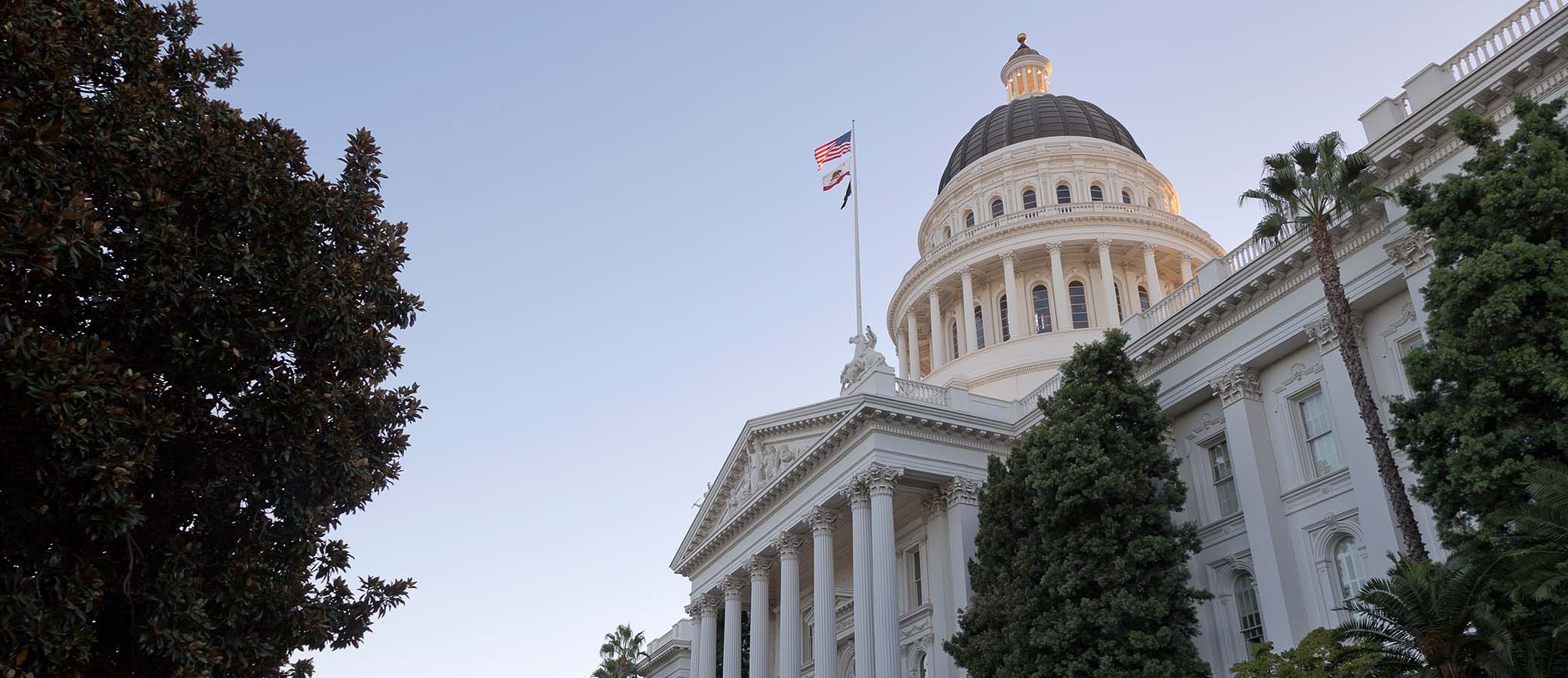California’s Climate Laws Face Yet Another Challenge Based on Alleged Violation of the First Amendment
V&E Governance and Sustainability Update

V&E Governance and Sustainability Update
An oil major (“the Company”) filed suit in federal court on October 24, 2025, challenging California’s Climate Laws — the Climate Corporate Data Accountability Act (“SB 253”) and the Climate-Related Financial Risk Act (“SB 261”) — on the basis that the laws violate the Company’s First Amendment rights. Filed in the United States District Court for the Eastern District of California (“the District Court”), the complaint seeks, among other things, to enjoin the enforcement of both of the California Climate Laws against the Company. The challenge is broadly consistent with an already existing lawsuit against the California Climate Laws brought by the U.S. Chamber of Commerce and five co-plaintiffs — that lawsuit is now on appeal to the United States Court of Appeals for the Ninth Circuit. This new suit challenges some of the methodology used by the Greenhouse Gas (“GHG”) Protocol, upon which one of the laws (SB 253) is predicated, and also asserts other concerns pertaining to California’s attempts to compel climate-related disclosure broadly. What remains to be seen is whether this second lawsuit will prompt delay or deferment of current compliance deadlines for SB 253 and SB 261 by the California Air Resources Board (“CARB”) pending such challenges.
The Complaint
The Company argues that the California Climate Laws will compel it to “engage in speech” with respect to GHG emissions and climate-related financial risks “using frameworks with which it fundamentally disagrees.” Central to the Company’s argument regarding SB 253 is its critique of the GHG Protocol. SB 253 requires companies to use the GHG Protocol to measure and report its GHG emissions.1 The Company asserts that the GHG Protocol only focuses on absolute emissions, precluding “meaningful comparisons” across companies, making large companies look bad compared to their smaller counterparts. Additionally, the Company also argues that the GHG Protocol’s focus on Scope 1, Scope 2, and Scope 3 GHG emissions fails to account for avoided emissions, disincentivizing such work, and, for Scope 3 in particular, forces companies to report based on estimated data (both uncertain and unverifiable). The Company contends that SB 253 will, from 2027 onward, penalize its current approach to Scope 3 GHG emissions reporting (limited to Category 11 of the GHG Protocol) and require it to report GHG emissions for which it lacks reliable data.
With respect to SB 261, the Company argues it, alongside other public companies, already detail their material financial risks in annual SEC filings. But pursuant to SB 261, companies would be required to create and publicly disclose a “detailed, speculative risk report” using the recommendations of the Task Force on Climate-related Financial Disclosures (“TCFD”), and include an explanation as to any reporting gaps. This framework, the Company asserts, requires it to engage in “granular conjecture.” Moreover, the Company argues that SB 261 is expressly preempted by the National Securities Markets Improvement Act of 1996 (“NSMIA”), as it imposes enhanced investor reporting requirements beyond those already covered by SEC requirements.
The complaint asks the District Court to declare that SB 253 and SB 261 violate the First Amendment, and that SB 261 is preempted by NSMIA, and to enjoin California from enforcing the laws.
What Now?
This new legal challenge to the California Climate Laws is still in the very early stages; thus, it remains to be seen how it will play out and if there will be any effect on compliance deadlines. To date, CARB has shown no inclination to delay compliance with either SB 253 or SB 261, and, for the time being, companies subject to the latter will still have to post a link to their SB 261-compliant reports on CARB’s public docket (not yet available) by January 1, 2026. Notably, the California Climate Laws have already withstood an attempt to block them in the other pending lawsuit challenging their constitutionality, with the United States District Court for the Central District of California denying plaintiffs’ request for injunctive relief.
Although the Company’s challenge could prompt other companies to assert similar challenges now that the SB 261 compliance deadline is imminent, companies subject to either of the California Climate Laws (or that believe they might be) should continue with their reporting preparations, using the checklist and template provided by CARB as a good starting point. As of now, and barring unforeseen appellate developments, it appears that reporting compliance is likely to be due before final resolution of these lawsuits, so it would be prudent to assume the deadlines will stand for the time being.
V&E will continue to monitor these developments related to climate-related disclosure laws. Please reach out to your V&E team to discuss these matters and their implications for your business.
1 “A reporting entity shall, beginning in 2026, measure and report its emissions of greenhouse gases in conformance with the Greenhouse Gas Protocol standards and guidance, including the Greenhouse Gas Protocol Corporate Accounting and Reporting Standard and the Greenhouse Gas Protocol Corporate Value Chain (Scope 3) Accounting and Reporting Standard developed by the World Resources Institute and the World Business Council for Sustainable Development[.]”Cal. Health & Safety Code § 38532(c)(1)(A)(ii).
Related Insights
- CLE EventVinson & Elkins - Houston OfficeJanuary 29, 2026CLE Credit
- Insight
V&E Shareholder Engagement Update
December 12, 2025 - Insight
V&E Shareholder Litigation and Enforcement Update
December 11, 2025 - Insight
V&E Governance and Sustainability Update
November 21, 2025
This information is provided by Vinson & Elkins LLP for educational and informational purposes only and is not intended, nor should it be construed, as legal advice.